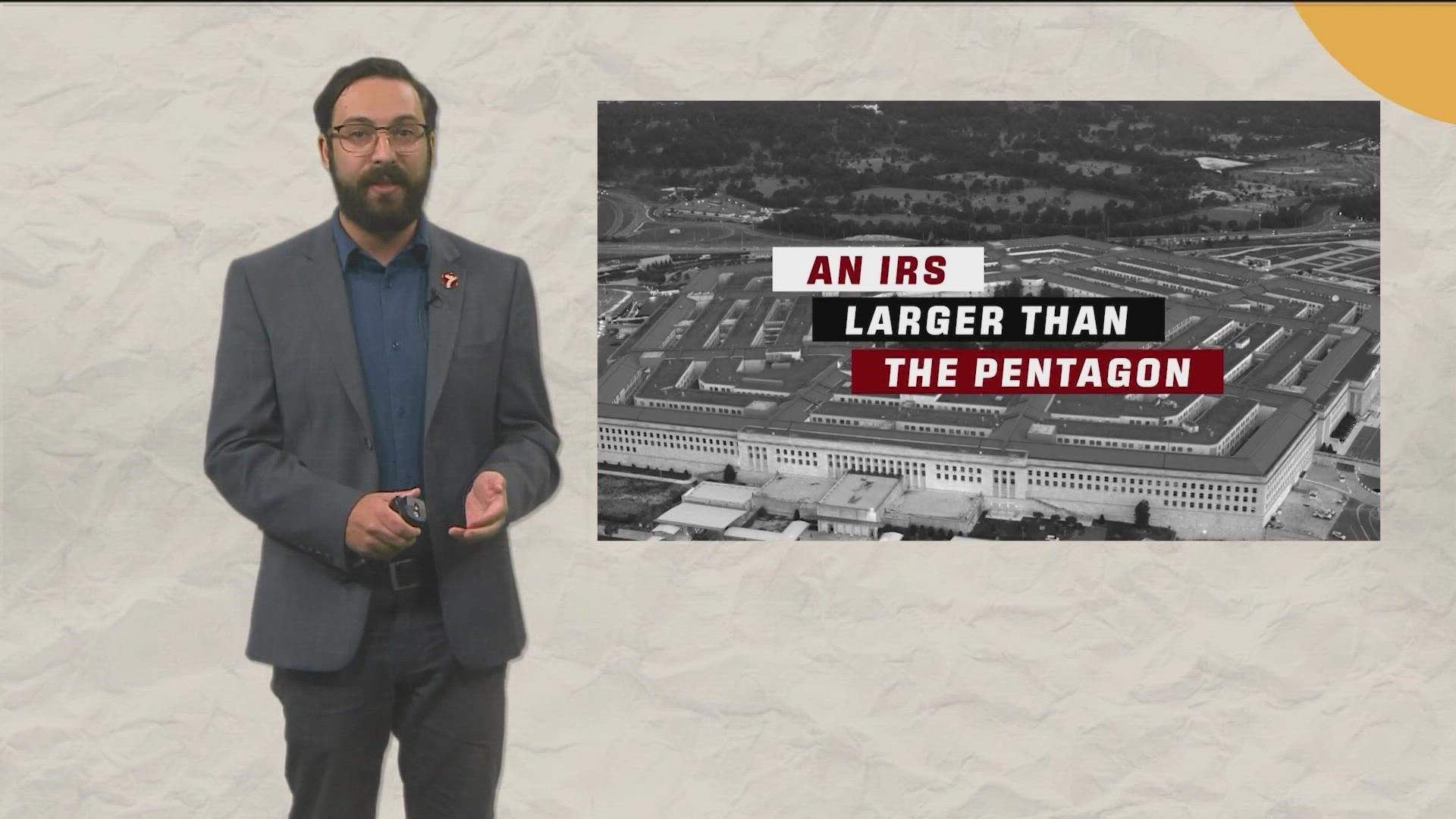BOISE, Idaho — The latest political ad from Senator Mike Crapo takes on a familiar tone for GOP politicians; questioning the work and investments into the Internal Revenue Service, the IRS.
The advertisement begins: “Joe Biden, Chuck Schumer and Nancy Pelosi just supersized the IRS. To get more money to spend…”
The opening claim touches on the "us vs them" mentality of Idaho vs the Democrat-controlled house, senate, and presidency in Washington. The supersized IRS comment is in reference to the passage of the Inflation Reduction Act, the massive congressional deal that was approved strictly on party lines. The act includes an $80 billion dollar allocation to the IRS for a large variety of investments.
Crapo implies that democrats approved heavy investments into the IRS to “get more money to spend.” It is unclear exactly what Crapo means by that, but he is likely referencing a popular GOP point this election season: Democrats are investing billions into auditing Americans and their taxes to generate more tax dollars for democrat-backed spending programs.
The IRS Commissioner Charles Rettig wrote to congress in August to tell them about the challenges the IRS is facing, and why they need more investments. Rettig wrote: “For too long, the agency has not had the resources that it needs to ensure the tax laws are enforced fairly and that Americans receive the level and quality of service they deserve.”
Republicans have pushed the idea that increased investments into the IRS will end up with middle- and low-income Americans being nickeled and dimed through audits, again to pay for Democrat-backed spending packages. The IRS has said publicly and bluntly this is not the plan, Rettig told congress the IRS is focused on top earners and large corporations to hold them accountable and to make sure they are paying their fair share.
Rettig wrote, “Large corporate and high-net-worth taxpayers often engage teams of sophisticated representatives who pursue unsettled or sometimes questionable interpretations of tax law. The integrity and fairness of our tax administrative system relies upon the ability of our agency to maintain a strong, visible, robust enforcement presence directed to these and other similarly situated taxpayers when they are noncompliant.”
The advertainment continues: “Eighty billion dollars. Five times the current budget of the IRS. 87,000 new recruits. An IRS larger than the Pentagon.
That $80 billion is meant to be budgeted over the next decade, not just over next year. Breaking down the $80 billion, the Congressional Research Service wrote that, “The IRA (Inflation Reduction Act) would give the IRS $45.6 billion for tax enforcement activities such as hiring more enforcement agents, providing legal support, and investing in “investigative technology.” $25.3 billion is set for general IRS support, like covering facilities cost, postage, and security. Remaining funds are for technology and service upgrades, like for antiquated computer systems the IRS still uses.
The 87,000 new recruits implies that an army of auditors will be hired to audit Americans. While it is true that increased funding will certainly include hiring more agents to audit Americans, the IRS wrote to congress that they needed staffing assistance across the board, they are not looking to hire 87,000 auditors. Commissioner Rettig wrote, “The IRS has fewer front-line, experienced examiners in the field than at any time since
World War II, and fewer employees than at any time since the 1970s. Advances in technology have been helpful but have not kept pace with the ever-increasing responsibilities and challenges facing the IRS. As a result, the IRS has for too long been unable to pursue meaningful, impactful examinations of large corporate and high-net worth taxpayers to ensure they are paying their fair share.”
The advertisment wraps up: “An IRS larger than the Pentagon.”
Back to this quickly, the IRS is looking to hire a significant number of employees because, according to the IRS, an estimated 52,000 of 83,000 are eligible to retire or resign within the next six years, that accounts for about 63% of the IRS workforce.
So, hiring is a battle for the IRS. But, what is the workforce at the Pentagon? The Pentagon reports that they house approximately 24,000 military and civilian employees and approximately 3,000 non-defense support personnel. So, clearly less than the current IRS staff of 83,000. But those IRS staffers are housed across the country. The Pentagon includes the Department of Defense, which has 2.91 million service members and civilians. The DOD is also the largest employer in the world, again housed at the Pentagon. So, saying the IRS would be bigger than the Pentagon staff is a very qualified statement.
Join 'The 208' conversation:
- Text us at (208) 321-5614
- E-mail us at the208@ktvb.com
- Join our The 208 Facebook group: https://www.facebook.com/groups/the208KTVB/
- Follow us on Twitter: @the208KTVB or tweet #the208 and #SoIdaho
- Follow us on Instagram: @the208KTVB
- Bookmark our landing page: /the-208
- Still reading this list? We're on YouTube, too:

